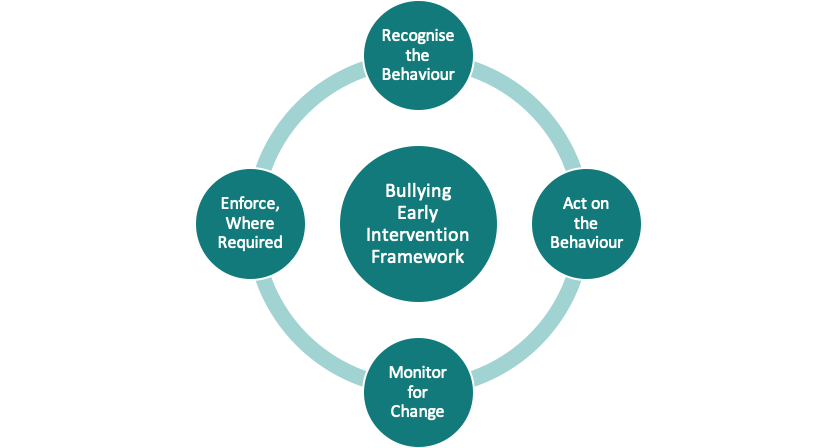The issue of costs relating to the Fair Work Commission (FWC) anti-bullying orders is not one we hear much about. However, like most other workplaces and systems, the FWC have had to adapt due to the incidence of COVID-19. One employer, as a result of their adaption to COVID, decided to challenge the costs they incurred, asking for compensation be paid by the employee.
In this article, we explore what we can learn about the FWC’s anti-bullying orders and who pays the costs. This is particularly important given more workplaces are adopting hybrid work practices between their employee homes and office environs as this will require further adaption from employers and those external systems like the FWC.
Bailey vs Illawarra Home Loans
Justin Bailey made an application to the FWC for a stop bullying order in February 2020. The matter proceeded to a conference, rather than a full hearing in March. (A conference is a less formal hearing and held by the FWC in private.) At the conference, Bailey indicated that the behaviour had recently ceased, but feared the bullying would resume, so the matter was stood down for a month.
By April, COVID-19 had made it’s impact and Bailey had, like many others, transferred to working from home. However, instead of letting the application lapse, he applied to the FWC with a request for a further extension. In his application, he stated that he had been removed from normal work duties including making decisions about his staff and part of their computer system. He also felt excluded and isolated from his line management, stating that they had failed to reply to his communication attempts. This left him feeling abandoned and distressed. Fearing further escalation, the extension was granted and the matter was held over until May 2020. This was despite an objection from Illawarra Home Loans.
In May, a further extension was requested and granted as Bailey was due to return to the office environment in the following week. This would allow an opportunity to assess whether the behaviour had ceased.
In a conference in June 2020, after returning to an office environment, it was established the behaviour had ceased, and the bullying application withdrawn.
Application for Costs
In response to the bullying claims, Illawarra Home Loans made an application for costs, arguing that 60% of the $5,086.75 of the legal costs should be paid for by Bailey. They argued that:
- Bailey acknowledged the bullying was not taking place;
- was informed that the application would fail if the bullying was not occurring; and
- it should have been apparent to a reasonable person in Bailey’s position that the stop bullying application had no reasonable prospect of success.
The Decision – What Can We Learn?
The Commissioner presiding over the hearing dismissed the application for costs.
The question is what can we learn?
- A change in working locations doesn’t mean the risk of bullying is eliminated
The Commissioner stated “The COVID-19 pandemic has drastically altered the way Australian’s have undertaken work in 2020…The fact that his normal place of employment changed so drastically in the following months does not automatically lead to the Bullying Application being extinguished.”
This is particularly important given that many workplace have and will continue to adopt a hybrid model of working for your employees.
COVID-19 created an environment of uncertainty for everyone and the FWC had to adjust their decision making to fit within the context of what was occurring. The Act, in making an order, requires a Commissioner to take into account “any matters that the FWC consider relevant”, which in this circumstance changes due to COVID-19 are. Our expectations, therefore, in circumstances also need to be modified. - Evidence is key when arguing the bullying will not continue
Under the Act, the FWC must consider if “there is as risk that the worker will continue to be bullied at work by a group or individual”. Throughout the process, Illawarra Home Loans provided no evidence that the bullying didn’t occur in the first instance. Bailey provided a list of 18 incidents that occurred across mid December 2019 to mid February 2020. While Illawarra claimed the application was instigated for other purposes, namely enforcing a commercial agreement between the two parties, no evidence was provided supporting this claim.
Therefore, in the absence of evidence and given the history, the FWC deemed there was a risk that the bullying could continue and the matter adjourned as it was. - Engaging a legal representative was a choice, not an essential
The Commissioner assessed that given the matter had not proceeded to a hearing, it was maintained at an informal conference level, the Director of Illawarra Home Loans could have represented the company without engaging a legal representative. This meant the employer could have minimised their costs.
This is an interesting question and one to be made in conjunction with your legal advice as to whether you need paid representation or represent yourself.
Learn more about our Workplace Bullying Prevention Workshops
Contact us today for a confidential discussion on how we can help you through our preventative bullying workshops.


